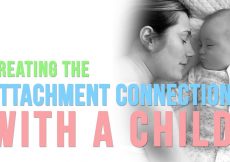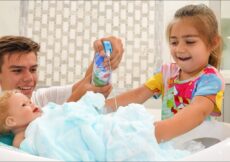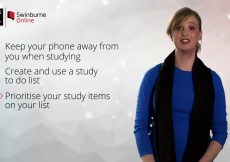Everyone knows that some college students study abroad in foreign countries worldwide while earning an undergraduate degree. Many spend their summers interning for companies large and small to gain valuable work experience before graduation.
But did you know that students in the Disney College Program can apply to earn a paid, semester-long internship and potentially earn course credits at one of the most magical places right here in the U.S. — the Walt Disney World Resort in Orlando, Florida?
The Disney College Program started in 1981 as Disney prepared to open its Epcot Center park in Florida. Currently, around 50,000 students annually apply for this competitive program, with only 12,000—13,000 being accepted each year.
Disney College Program Housing
Students who become part of the program can choose to live in Disney-owned housing complexes near the resorts, with rent payments taken directly from the students’ pay for working at the parks. The apartments are fully furnished, and rent includes all utilities, including high-speed internet access, water, waste disposal, and electricity.
Housing costs range from $175 to $235 per week depending on the type of apartment a participant selects to live in during their program.
Disney College Program Jobs
College students are offered more than twenty different work positions across theme parks, resorts, restaurant and shopping venues, water parks, and mini-golf attractions. The jobs range from food service, merchandise sales, character performance, custodial, lifeguard, ride attendant, and photographer, to name a few.
Participants may work indoors and outdoors at the theme parks, Disney Springs, water parks, and resorts. They will earn an hourly rate based on their specific role but will be paid at least $14 an hour. At the time of application, participants must be receptive to all parts.
While students are employed during their internship, and they must be available to work all time shifts, they can also opt to take several different kinds of Disney Education courses.
Collegiate courses are recommended for credit by the American Council on Education. Still, each academic institution has the ultimate decision on structuring the requirements for credit and how these credits may be transferred, as Disney Internships and Programs do not award or transfer credits.
In addition, there are seminar offerings that include guest speakers, field experiences, and activities to highlight Disney’s diverse lines of business, such as marketing, hospitality, human resources, and sustainability.
The program offers self-paced learning opportunities like career development workshops and alumni speaker series.
The Disney Education instructors are long-time cast members with impressive resumes and industry and content-area experts with years of practical experience in their fields.
Disney College Program Requirements
A student must be at least 18-years old when they arrive to begin the program.
Applicants need to be currently enrolled in an accredited institution or program, have completed at least one semester, or have graduated college within 24-months of the application posting date. High school students in dual enrollment or students taking time off from college are not eligible. The program cannot be a student’s first semester in college, but freshmen can apply for their second semester.
Students must also meet their own school’s participation requirements, such as minimum GPA and credit hours earned. Disney accepts students from all college majors.
The process has three steps. If an online application is reviewed favorably, an applicant moves on to a live, web-based interview. If that goes well, another phone interview is conducted before a student is offered a position. The entire application process can take anywhere from around three weeks to as long as three months. A student who is not accepted cannot apply again in the same semester.
Adam Teich, who was a Business Management major at Northern Arizona University, recently participated in the Florida-based college program, doing shifts at both the Disney World Resort and Disney’s Animal Kingdom. He first heard about the DCP while in high school and thought it sounded like a dream internship.
Adam lived in one of the four Disney housing complexes and described them as,
incredibly convenient and a great way to meet new people down here. They constantly have free events with food and different activities going on throughout the program. I didn’t have a car here and housing has free shuttles that will take you to the parks and your work locations. Some even took you places like the grocery store and UPS.
Disney College Program Experience
Many, but not all, of the college program students, would like to work for Disney after they graduate. The corporation says it doesn’t track how many of its employees participated in the DCP. Still, the experience does seem to give them a bit of a competitive edge when they apply for Disney professional and management internships or permanent jobs. Adam is currently employed full-time by Disney.
Even for the students who don’t plan to work for Disney, having their college program listed on a resume adds a certain prestige and helps them stand out from other job applicants, due to the company’s high standards for employee behavior and appearance.
Known as the “Disney Look,” all college program students must also adhere to the company’s strict brand guidelines that were established back when Disneyland first opened in 1955.
There is a “Disney Look” that must be adhered to
For example, from the Cast Member Handbook: “The Disney Look is a classic look that is clean, natural, polished and professional, and avoids “cutting edge” trends or extreme styles. It is designed with our costumed and non-costumed Cast Members in mind.”
Going in, college students who are interested in applying for the Disney College Program need to be aware of the firm rules about acceptable hairstyles, eyewear, jewelry, tattoos, and even nail length and polish colors.
Adam’s tips for successfully navigating the competitive application process are to remain confident and optimistic. If an applicant already displays the attributes of a Disney employee — “quick to smile and eager to help” — they already have a leg up.
He also suggests students research all possible job offerings and apply for work positions that they already have some experience doing, such as retail skills, culinary knowledge, or any stage performance involvement. Of course, having patience with children and tired adults is a bonus.
Completing the Disney College Program could assist a student in obtaining a future professional internship with Disney or one of its many subsidiary companies, so it’s worth looking into.
As Walt Disney once said, “Whatever you do, do it well. Do it so well that when people see you do it, they will want to come back and see you do it again, and they will want to bring others and show them how well you do what you do.”
That’s a pretty great philosophy for both work — and life.
For more information:
Here’s the website and you can find the Disney program on Instagram and Twitter.
More to Read:
It’s Easy to Judge Until It’s Your Kid, Let’s Try Compassion



































